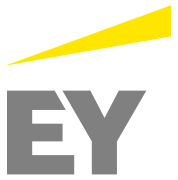- 65% of Australian respondents believe a strong reputation for ethical behaviour is a commercial advantage, yet 43% believe people with questionable ethical practices are seen to be promoted
- 39% of Australian respondents believe bribery and corrupt practices happen widely in Australia
- 51% of Australian respondents believe their organisation will be at increased risk of being a victim of cyberattacks over the next few years
 More than nine in ten (93%) respondents to the EY Asia-Pacific (APAC) Fraud Survey 2017 want to work for a compliant organisation but are confused by inconsistent compliance policies that lack clarity and are clouded in legal jargon. In fact, 35% of Australian respondents believe their organisation’s current code of conduct has little impact on how employees actually behave.
More than nine in ten (93%) respondents to the EY Asia-Pacific (APAC) Fraud Survey 2017 want to work for a compliant organisation but are confused by inconsistent compliance policies that lack clarity and are clouded in legal jargon. In fact, 35% of Australian respondents believe their organisation’s current code of conduct has little impact on how employees actually behave.
EY APAC Fraud Survey 2017 titled ‘Economic uncertainty/Unethical conduct: How should over-burdened compliance functions respond?’, surveyed 1,698 employees from large businesses in 14 Asia-Pacific territories. It highlights the calls from employees for corporate policies combating fraud, bribery and corruption to be simplified to ensure they are not only understood but also complied with.
Only 54% of APAC respondents believe their anti-bribery/anti-corruption (ABAC) policies are relevant and effective. In Australia, 26% of respondents would shorten their existing ABAC policies to ensure key messages don’t get lost and 23% would simplify the language so it wasn’t overly complicated or composed of legal jargon.
The survey highlighted the significant impact ethical conduct has on hiring and retaining employees, with over three quarters (79%) of Australian respondents stating they would look for a new job if their organisation was involved in a major fraud, bribery or corruption case.
Chris Fordham, EY Asia-Pacific Leader, Fraud Investigation & Dispute Services, says:
“Employees are demanding absolute clarity and anything short of that impacts morale, hiring, retention and overall business performance. Corporates need to simplify their compliance protocols to ensure employees follow them.”
Economic targets trump ethical conduct
Slow economic growth coupled with growing pressure to exceed the business bottom line is taking its toll on Australia’s ethical conduct, with close to a third of Australian respondents (32%) believing bribery and corrupt practices have increased because of tough economic conditions and increased competition. Over a quarter of Australian respondents (27%) believe it is common practice in their industry or sector to use bribery to win contracts and 31% believe Australian companies often report financial performance as better than it is. Alarmingly, 23% of Australian respondents believe there are no clear penalties for breaking their ABAC policies.
EY Oceania Managing Partner, Fraud Investigation & Dispute Services, Rob Locke says:
“What’s most concerning for Australian business is the overwhelming belief that achieving economic targets trumps the need for ethical behaviour. Our survey revealed that despite wanting to work for ethical organisations, 17% believe it is justified to deliberately misstate a company’s financial performance to meet financial targets. A further 20% of respondents believe it is justified to amend financial reports to provide a more positive outlook on results.
“CEOs, boards and senior management not only play an integral role in setting compliance policies but have a responsibility to ensure the wider company is following them. With 43% of Australian respondents believing people with questionable ethical practices are seen to be promoted, Australian business leaders need to recognise that perception is reality when it comes to ethical conduct,” Locke added.
Whistleblowing hotlines underutilised by employees
Sixty-one percent of APAC respondents say they have a whistleblowing hotline within their organisation. But when it comes to reporting unethical acts, employees are reluctant to use the existing internal whistleblower hotlines as they do not trust their organisation will protect their anonymity or follow-up with proper remedial actions. Nearly a third (28%) say they would prefer to use external law-enforcement hotlines and even social media channels to report misconduct instead.
In Australia increased regulatory scrutiny and activity continues to have an impact on employee willingness to use whistleblowing hotlines, with 27% of Australian respondents stating they would be most comfortable reporting misconduct directly to their senior manager.
Despite the growing presence of whistleblowing policies, almost one in five (17%) Australian respondents have withheld information or concerns due to internal pressures.
Fordham says: “It’s encouraging that more companies in Asia-Pacific now have whistleblower hotlines. But we’re concerned that employees still don’t have enough faith that their reports will be handled confidentially or that these reporting mechanisms will result in proper follow-up and punishment for the guilty parties”.
APAC awash with naiveté over the scale of cyber-threats
Nearly half (47%) of the APAC survey respondents say there’s no particular company policy controlling how staff use personal devices for work-related activities at their organisations. This creates new vulnerabilities for organisations with almost half (49%) of respondents agreeing that they conduct business using their personal mobile devices, despite they may have been issued with a work mobile device, and 39% recognising that there are risks associated with using personal devices for work.
Locke says: “Asia-Pacific can no longer afford to be complacent when it comes to cyber-threats. Whilst companies often think of cyberattacks as external threats, they would be well advised not to ignore the very real threats posed internally.
Current cyber policies are inadequate in safeguarding against rogue employees and criminals who are intent on stealing data, intellectual property and even cash. Given 40% of Australian survey respondents say they do not have a policy in place for using personal devices at work, companies must design and enforce policies that help mitigate the risk of both external and internal cyber-attacks.”
About EY
EY is a global leader in assurance, tax, transaction and advisory services. The insights and quality services we deliver help build trust and confidence in the capital markets and in economies the world over. We develop outstanding leaders who team to deliver on our promises to all of our stakeholders. In so doing, we play a critical role in building a better working world for our people, for our clients and for our communities.
EY refers to the global organization, and may refer to one or more, of the member firms of Ernst & Young Global Limited, each of which is a separate legal entity. Ernst & Young Global Limited, a UK company limited by guarantee, does not provide services to clients. For more information about our organisation, please visit ey.com.
About EY’s Fraud Investigation & Dispute Services (FIDS)
Dealing with complex issues of fraud, regulatory compliance and business disputes can detract from efforts to succeed. Better management of fraud risk and compliance exposure is a critical business priority — no matter the size or industry sector. With more than 4,500 fraud investigation and dispute professionals around the world, EY provides the analytical and technical skills needed to quickly and effectively conduct financial and other investigations, as well as gather and analyze electronic evidence. Working closely with you and your legal advisors, we will assemble the right multidisciplinary and culturally aligned team, and bring an objective approach and fresh perspective to challenging situations, wherever you are in the world. And because we understand that you require a tailored service as much as consistent methodologies, we work to give you the benefit of our broad sector experience, our deep subject matter knowledge and the latest insights from our work worldwide.
About the survey
Between November 2016 and February 2017, our researchers — the global market research agency Ipsos — conducted 1,698 interviews with employees of multinational corporations and domestic companies in 14 APAC territories: Australia, mainland China, Hong Kong, India, Indonesia, Japan, South Korea, Malaysia, New Zealand, the Philippines, Singapore, Taiwan, Thailand, Vietnam. The interviews were conducted online in local languages on an anonymous basis covering a mixture of company sizes, job roles and industry sectors.





